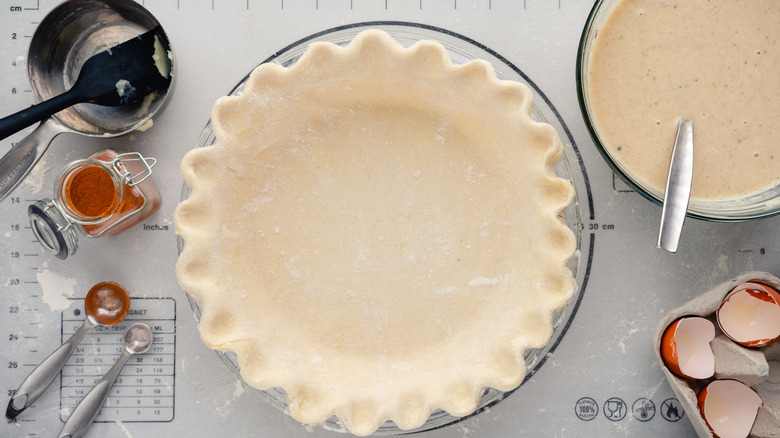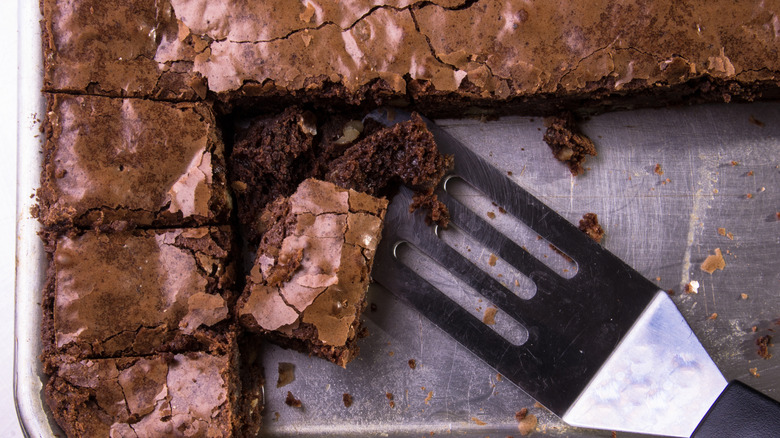Glass Vs Metal Baking Pans: How To Know When To Use Each One
Using the right tool for the task is important, and this is especially true when it comes to baking, a delicate process where even a slight error can spell culinary disaster. Using the wrong kind of pan can overwhelm your flavors by adding bitter notes, or unevenly bake dishes that are burnt on the outside and goopy in the middle.
Many of the differences between glass and metal baking pans are a matter of physics, specifically the concept of heat transfer. Metal pans, especially ones made out of aluminum, are excellent conductors of heat. Reactive metals like aluminum, copper, and iron heat up both rapidly and evenly, ensuring a smooth bake without any hot spots on the pan.
Glass pans, on the other hand, are nonreactive and take longer to conduct heat. In effect, the time it takes for glass to heat up partially insulates the food from the oven heat, which can result in uneven baking. But, although you want to avoid glass when baking a cake, there are a handful of times you would want to specifically use a glass pan.
When to use glass baking pans
Glass baking pans owe their main benefits to the properties that metal baking pans lack. One glaring example of this is that glass is see-through, and metal is not. Glass baking pans are perfect for making any sort of pie, precisely because the clear pan makes it easy to monitor the progress of your pie crust. This is crucial when blind baking a fresh crust, as with a perfect pumpkin pie.
Metal pans are perfectly capable of making pies, so if that's all you have on hand, don't worry. But a glass pan makes it much easier to ensure the crust comes out just right.
Another crucial use case for glass baking pans instead of metal ones has to do with chemistry. Acids in certain foods, like the tomato sauce in a lasagna and the blueberries in blueberry pie, can sometimes react with the metal in your pan to leave your dish tasting bitter. Some metal pans avoid this with a nonreactive coating, though the problem will persist if scratches expose the metal underneath. Glass, on the other hand, will have no such chemical reaction, and your lasagna will come out tasting just right.
When to use metal baking pans
Metal baking pans are a versatile kitchen accessory that can be used to cook almost anything, which is part of why they are a restaurant industry standard. Metal baking pans are the perfect choice for a range of batter-based recipes, such as brownies, blondies, breads, and cakes.
The reason why metal is the superior choice is because of its strength as a heat conductor. Unlike a glass pan, metal pans will heat up faster, and do a more efficient job of transferring heat to the food inside. This results in a more even bake, allowing you to avoid burning the edges or leaving the middle undercooked.
Except for cast iron, another benefit to metal pans is that they release heat much faster than glass. This means that when you pull your aluminum pan full of cake out of the oven, the cake will stop baking when you remove it from heat. Glass retains heat for longer, and would overcook the edges of your cake after it's removed from the oven.


